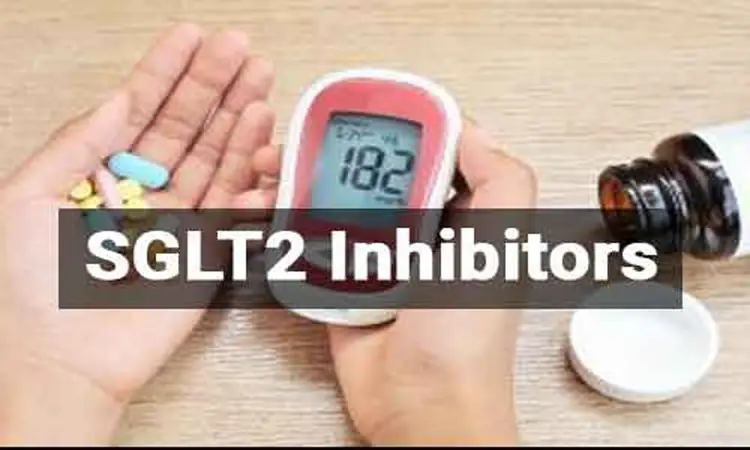- Home
- Medical news & Guidelines
- Anesthesiology
- Cardiology and CTVS
- Critical Care
- Dentistry
- Dermatology
- Diabetes and Endocrinology
- ENT
- Gastroenterology
- Medicine
- Nephrology
- Neurology
- Obstretics-Gynaecology
- Oncology
- Ophthalmology
- Orthopaedics
- Pediatrics-Neonatology
- Psychiatry
- Pulmonology
- Radiology
- Surgery
- Urology
- Laboratory Medicine
- Diet
- Nursing
- Paramedical
- Physiotherapy
- Health news
- Fact Check
- Bone Health Fact Check
- Brain Health Fact Check
- Cancer Related Fact Check
- Child Care Fact Check
- Dental and oral health fact check
- Diabetes and metabolic health fact check
- Diet and Nutrition Fact Check
- Eye and ENT Care Fact Check
- Fitness fact check
- Gut health fact check
- Heart health fact check
- Kidney health fact check
- Medical education fact check
- Men's health fact check
- Respiratory fact check
- Skin and hair care fact check
- Vaccine and Immunization fact check
- Women's health fact check
- AYUSH
- State News
- Andaman and Nicobar Islands
- Andhra Pradesh
- Arunachal Pradesh
- Assam
- Bihar
- Chandigarh
- Chattisgarh
- Dadra and Nagar Haveli
- Daman and Diu
- Delhi
- Goa
- Gujarat
- Haryana
- Himachal Pradesh
- Jammu & Kashmir
- Jharkhand
- Karnataka
- Kerala
- Ladakh
- Lakshadweep
- Madhya Pradesh
- Maharashtra
- Manipur
- Meghalaya
- Mizoram
- Nagaland
- Odisha
- Puducherry
- Punjab
- Rajasthan
- Sikkim
- Tamil Nadu
- Telangana
- Tripura
- Uttar Pradesh
- Uttrakhand
- West Bengal
- Medical Education
- Industry
SGLT2 inhibitors may increase risk of genital mycotic infections, finds review

USA: Researchers have found in a review that the use of SGLT2 inhibitors increases the risk of mild genital mycotic infections (GMIs). Due to which SGLT2 inhibitors should be avoided in female patients with a history of severe, recurrent infections. Preventive strategies should include personal hygiene advice and optimized diabetes management.
The recent study published in the Annals of Pharmacotherapy has shed light on the strategies for the prevention and management of sodium-glucose cotransporter 2 (SGLT2) inhibitor-associated genital mycotic infections.
Kristin Engelhardt, Southern Illinois University Edwardsville, IL, USA, and colleagues reviewed the incidence, risk factors, prevention, and management of GMIs associated with SGLT2 inhibitors.
The researchers performed a literature search of PubMed and Reactions Weekly in February 2020 to identify relevant regarding SGLT2 inhibitors and GMIs. All the available data was evaluated for inclusion based on relevance to the research question, timeliness of the publication, validity, and impact on current practice. A date limit was not set; however, publications from 2010 to July 2020 were prioritized.
Relevant points of the study include:
- The 3- to 4-fold increased incidence of GMIs is considered a classwide effect of SGLT2 inhibitors.
- Female sex and a prior history of GMIs are factors associated with the highest risk, whereas circumcised males are at the lowest risk of SGLT2 inhibitor-induced GMI.
- Personal hygiene advice can reduce infection risk.
- When candidiasis occurs, it is often mild and responsive to treatment and often does not require discontinuation of the medication.
This review may help in shared decision-making discussions regarding which patients may benefit from SGLT2 inhibitors and provides guidance to health care professionals on managing SGLT2 inhibitor-associated GMIs.
"SGLT2 inhibitors predispose patients to mild GMIs. Strong consideration should be given to avoid SGLT2 inhibitors in female patients with a history of severe, recurrent infections. Preventive strategies are optimized diabetes management and personal hygiene advice," concluded that authors.
Dr Kamal Kant Kohli-MBBS, DTCD- a chest specialist with more than 30 years of practice and a flair for writing clinical articles, Dr Kamal Kant Kohli joined Medical Dialogues as a Chief Editor of Medical News. Besides writing articles, as an editor, he proofreads and verifies all the medical content published on Medical Dialogues including those coming from journals, studies,medical conferences,guidelines etc. Email: drkohli@medicaldialogues.in. Contact no. 011-43720751


